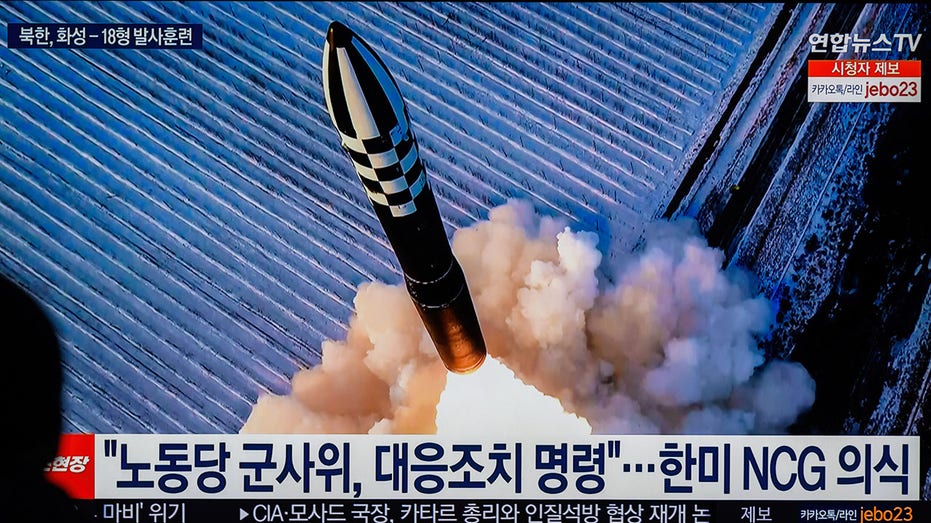North Korea, on Wednesday night, launched a long-range ballistic missile toward the Sea of Japan, a day after South Korean officials reported the North was preparing to test-launch an intercontinental ballistic missile (ICBM), which reportedly had the longest flight time of any previous test.
Reuters reported that the Joint Chiefs of Staff said in a statement that the missile was launched at a sharply raised angle at 7:10 a.m. local time, from an area near North Korea’s capital of Pyongyang.
The Japanese government later said the missile fell into the sea at 8:37 a.m., or 87 minutes later.
Japan’s minister of defense, Gen Nakatani said the flight time was likely the longest of any North Korean missile launch and could be a new type of missile.
NORTH KOREA LAUNCHES BALLISTIC MISSILE OFF EAST COAST, SEOUL SAYS
“It is believed the North Korean ballistic missile is a long-range ballistic missile fired at a high angle,” the Joint Chiefs of Staff said in a statement.
The Japanese government said the missile would land about 190 miles west of Okushiri Island, off the northern Hokkaido region, and outside its exclusive economic zone.
Japanese Prime Minister Shigeru Ishiba later stated there was no reported damage from the missile launch.
Nakatani said Japan strongly condemns North Korea’s action, which not just threatened Japan but also the international community.
SOUTH KOREA SAYS NORTH KOREAN LAUNCH OF POSSIBLE HYPERSONIC MISSILE FAILED MID-FLIGHT
South Korea’s Defense Intelligence Command said Wednesday that North Korea had placed a mobile launcher in preparation to launch what could be an ICBM around the time of the U.S. presidential election next Tuesday.
The National Security Council (NSC) issued a statement Wednesday night, strongly condemning North Korea’s ICBM test.
“This launch is a flagrant violation of multiple UN Security Council resolutions. While U.S. INDOPACOM has assessed it did not pose an immediate threat to U.S. personnel, or territory, or to our allies, this launch needlessly raises tensions and risks destabilizing the security situation in the region,” NSC spokesperson Sean Savett said. “It only demonstrates that the DPRK continues to prioritize its unlawful weapons of mass destruction and ballistic missile programs over the well-being of its people.”
Savett added, “We urge all countries to condemn these violations and call on the DPRK to cease its destabilizing actions and engage in serious dialogue. The national security team is closely coordinating with our allies and partners. The United States will take all necessary measures to ensure the security of the American homeland and Republic of Korea and Japanese allies.”
Although North Korea tested a ballistic missile on July 1, 2024, the last time the country tested an ICBM was in December of last year. The ICBM in December – fueled by solid-propellant and fired from a road launcher – was also fired at a sharply raised angle and had a flight time that could be translated to about 9,300 miles on a normal trajectory, which Reuters added, could put anywhere in the mainland of the U.S. within range.
Reuters contributed to this report.




